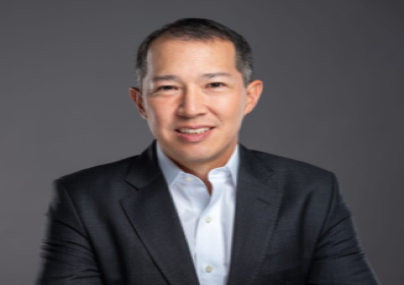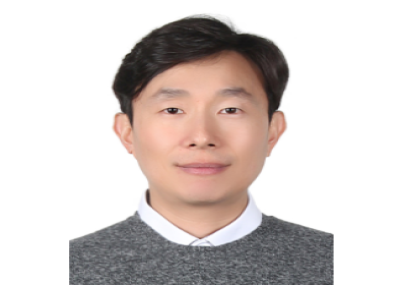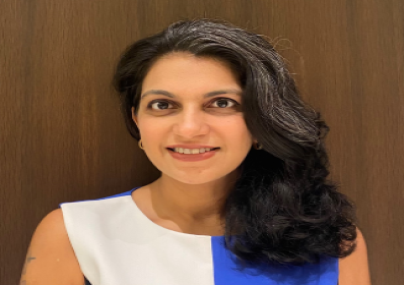
Lynette Ooi is head of legal, APAC & MEA at global online payments giant PayPal, a role she has held since April last year. Having started her career at law firms Simmons & Simmons and Allen & Gledhill, she moved in-house to Singtel before joining Amazon in 2015. At Amazon, she held various legal roles, including Senior Corporate Counsel & Head of Legal for ASEAN, Consumer, where she supported the expansion of Amazon's services in Singapore.
In her current role at PayPal, Ooi is responsible for the company's legal affairs in Singapore and other cross-border destinations in Asia-Pacific and the Middle East & Africa region. She develops a multi-jurisdictional team, advises PayPal Pte Ltd's board of directors, and strengthens relationships with government authorities. Outside of her legal career, she pursues her passion for music as a singer and songwriter in the Singapore-based alternative rock band, Fool's Decade.
EDITOR'S NOTE: If you're a general counsel based in Asia who'd like to be featured in this series, please email ranajit.dam@tr.com.
ALB: Could you share with us your journey to becoming a general counsel? What have been the most rewarding aspects of this role?
Ooi: I’ve been a lawyer for the tech industry for most of my career. I made the transition to a people manager in 2018. I was part of the “startup” team that launched a tech MNC’s ecommerce store in Singapore, and my manager entrusted our small Legal team to me when he returned to the US. Since then, I’ve scaled Legal teams to support new and growing tech businesses.
“I truly believe that a manager who has the heart to lead has a precious opportunity to impact people’s lives and careers in an extraordinary way. You have the chance to bring a lot of meaning, purpose and fulfilment to others, and this is what drives me in my role as a GC.”
Like many new managers, I made early mistakes, like being overbearing in my approach and not being patient enough in the hiring process. Over time, I learnt that management is about helping each individual fulfil their own unique potential and definition of success. It’s also about building a strong team by adopting a consultative approach and empowering team members to lead and support one another.
One of my management gurus is the late Clayton Christensen, and he famously said that if done well, management is among the most noble of professions. When I recall some of my greatest bosses and mentors, I can’t help but agree with him. I truly believe that a manager who has the heart to lead has a precious opportunity to impact people’s lives and careers in an extraordinary way. You have the chance to bring a lot of meaning, purpose and fulfilment to others, and this is what drives me in my role as a GC.
ALB: Can you describe your typical day or week as a GC? What are some of the key responsibilities and challenges you face?
Ooi: Like any leader, the hardest part about being a GC is effectively managing your time and energy. There are many competing priorities – you have to solve the organisation’s hardest legal challenges, build relationships with internal and external stakeholders, and manage both upwards and downwards. As the GC, it’s also your job to anticipate future trends and needs, and to address them today – whether it’s a new regulatory challenge, resource demands or shortages, or the need to institute AI and other automation in your processes.
The most effective GCs are able to “zoom out” to the big picture and help their senior executives make strategic and scalable decisions, but can also “zoom in” to the details to tackle complex problems and recommend tailored solutions. GCs also have to be dynamic and adaptable to respond to nuances across business lines, jurisdictions, and regulatory issues. No two days are the same and it can be exhausting, but it’s also a lot of fun!

ALB: What are some of the most significant legal or regulatory changes that have impacted your industry in recent years, and how have you navigated those challenges?
Ooi: With digitalisation and globalisation, the pace of innovation across industries is faster, and competition is more intense. This means that businesses have to adapt more quickly to invent new products and technologies. Regulators have also had to beef up their resources to respond to the changing technological, business, and political landscape. This means that regulatory work has become more complex, more dynamic, and more fragmented across countries. Examples of fast-evolving areas include data privacy, cybersecurity, antitrust, fintech, and digital asset regulation.
For the GC, this presents a significant challenge in terms of recruiting and retaining talent. It’s no longer sufficient to hire a lawyer who has expertise in a particular area or jurisdiction. You need employees who can adapt to different scenarios and jurisdictions, and drive resolution of novel issues. You need managers in your team who can coach employees and support them in developing new skill sets. I’ve been very fortunate with my team at PayPal, and I’m always looking to add value to help them grow and succeed in a volatile environment.
Finally, you need law firm partners who are equally dynamic and pragmatic, who can support you in this journey and think out of the box where needed. And increasingly, alternative legal service providers play a part in filling resource gaps in more flexible and customised ways.
ALB: How do you stay up to date with emerging legal trends, technologies, and best practices in your field?
Ooi: I would divide this into proactive monitoring and reactive research. For proactive monitoring, GCs need automated horizon scanning tools to capture legal and regulatory developments directly impacting their work. You have to work closely with vendors and invest significant effort in refining the efficacy of these tools. Law firm alerts and third-party research and analytics tools can also be effective and low-cost supplementary options.
For reactive research, I’ve found Gen AI tools to be very helpful in gaining a preliminary understanding of new fields, like cryptocurrencies and the economic landscape in emerging markets. It’s important to use an application that provides hyperlinks to the source material, so that you can do your own fact-checking and further research. Also ensure that you’re adhering to your company’s AI usage guidelines and policies, including protecting the confidentiality of company information.
“While automated tools are beneficial and sometimes essential, there is no substitute for networking and learning from other industry leaders. There are many conferences, associations and events available; the key is to be selective and find the right opportunities and individuals to exchange information with.”

ALB: What advice would you give to aspiring lawyers or law students interested in pursuing senior in-house roles?
Ooi: First, I’d encourage them to figure out what drives them in their work. Take time to identify your “why” – some lawyers love solving complex problems, others are driven by scaling businesses, and still others are motivated by the ability to lead others. A career coach can be a great help in this process. When you’ve found your purpose, design your career accordingly. Avoid simply chasing what other people view as success. If you put your own unique motivations front and centre, not only will you be happier and more fulfilled, but you are also more likely to excel and thrive.
Second, once you figure out what you’d like to do, seek out your own “panel” to help you along the way. Your panel should comprise mentors to give you guidance; role models to help you envision pathways to your own definition of success; and sponsors to provide opportunities for you. If you don’t have ready access to such individuals, it helps to build a personal brand via social media or join industry associations where you can network and meet the right people. There are lots of forums to meet senior leaders and if you approach them respectfully, you’ll find many of them are willing to spare time for a coffee, video call, or introduction.


